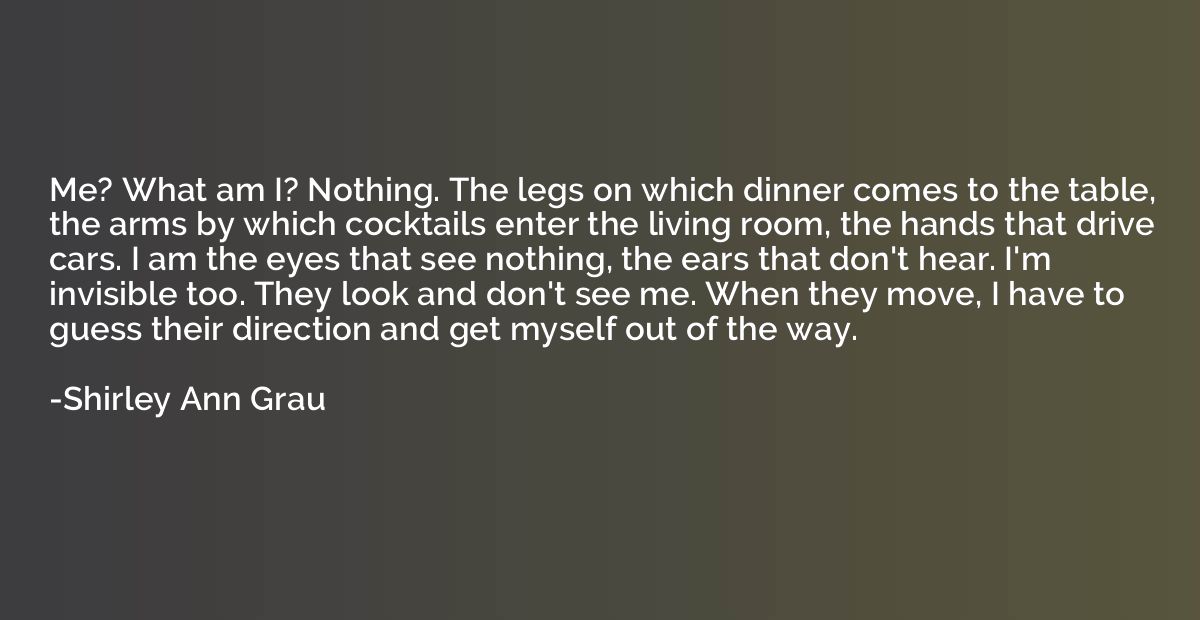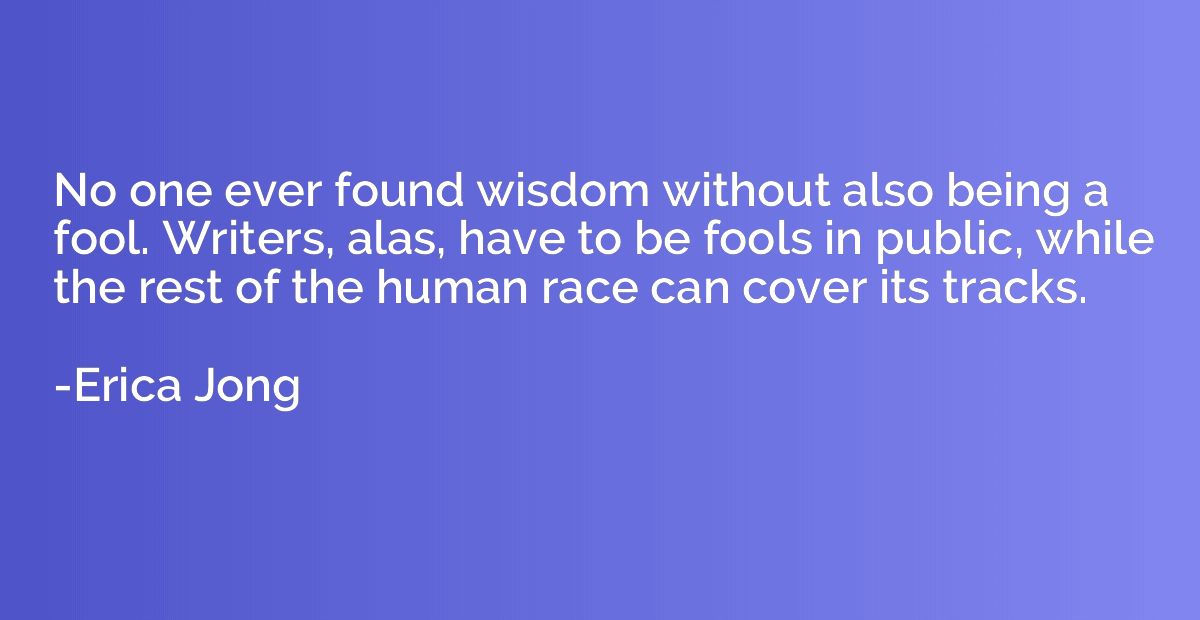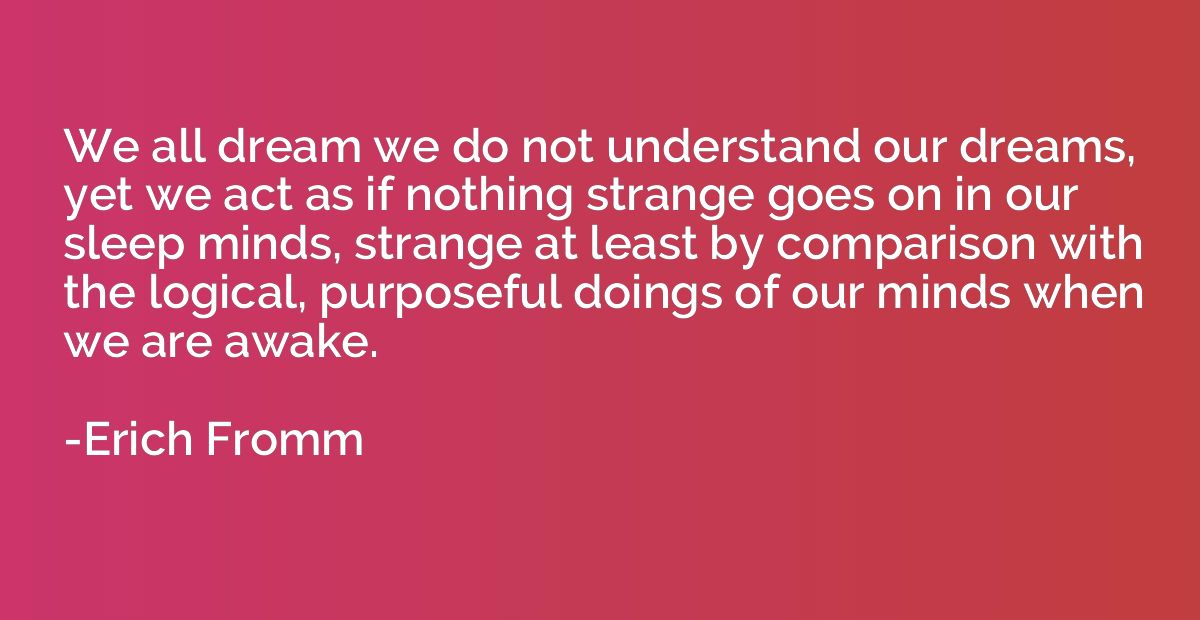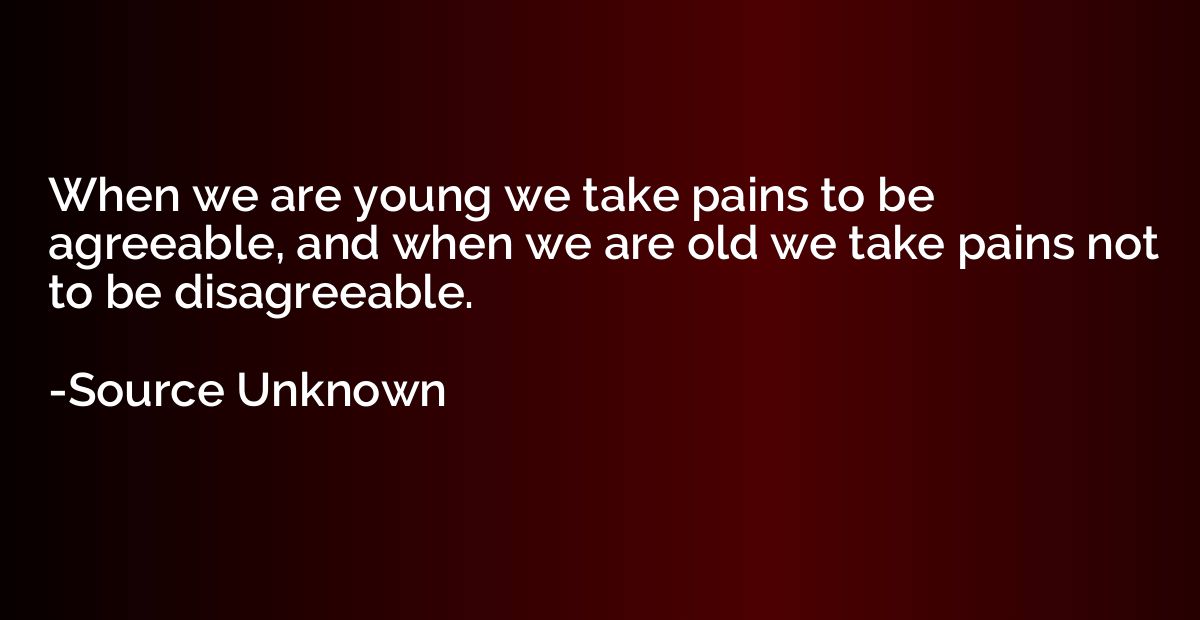Quote by Shirley Ann Grau
Me? What am I? Nothing. The legs on which dinner comes to the table, the arms by which cocktails enter the living room, the hands that drive cars. I am the eyes that see nothing, the ears that don't hear. I'm invisible too. They look and don't see me. When they move, I have to guess their direction and get myself out of the way.

Summary
Within these words, the speaker reflects on their existence, feeling like a mere vessel for the mundane functions of daily life. They see themselves as an invisible entity, overlooked and unnoticed by others. This view emphasizes their insignificance, likening themselves to the limbs and senses that facilitate the needs of others. The speaker's lack of presence is reinforced by the need to anticipate others' movements, further highlighting their perceived invisibility and the constant effort required to navigate their surroundings unnoticed.














